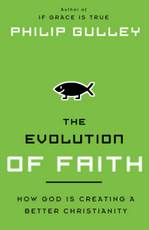 In many ways, the God of Mormonism is the patron saint of Lost Objects. Our relationship to this God is so close, to the point of calling him a “friend” at times, that he can help us retrace our steps to find some misplaced money, or most commonly, our keys. I admit that I have often utilized this particular service in my prayers.
In many ways, the God of Mormonism is the patron saint of Lost Objects. Our relationship to this God is so close, to the point of calling him a “friend” at times, that he can help us retrace our steps to find some misplaced money, or most commonly, our keys. I admit that I have often utilized this particular service in my prayers.
God’s intimate involvement in our lives is one of the most central themes of Mormonism. Our testimony meetings are filled with accounts of God’s participation in the most mundane aspects of our existence. He can help us decide or know all sorts of things. For Mormons, the Spirit guides us to know the “truth” of all things; seriously, all things, especially the lame ones.
This particular kind of petitionary prayer assumes an interventionist God who cares enough about keys to send his Spirit to lead us to them. This seemingly simple theological claim, however, drops us smack dab in the middle of some of the most meaty theological problems. For instance, a God who intervenes in our lives as much as our testimony meetings suggest squares us against the classical problem of evil. While Mormons generally take a free will view to the problem of evil, why doesn’t God let your free will affect you when you do stupid things like lose your keys, but he doesn’t intervene when the free will of others causes the Holocaust? Other Mormons invoke a finitist theology to explain why God doesn’t intervene against the big evils, but in some versions this explanation makes God so finite as to be able to effectuate my eternal salvation, but not capable of much more.
Can Mormonism sustain a less-interventionist God? Can Mormons be deists, believing that God pretty much lets the world run itself? Or, is the message of the Restoration too intimately bound up with a God who gets muddy in the mundane, as the D&C often depicts?











